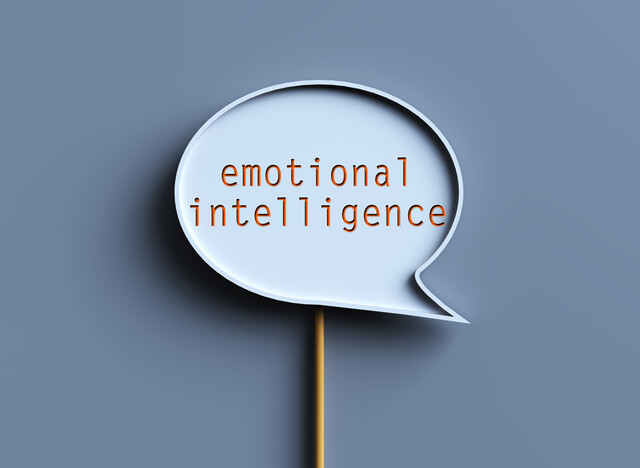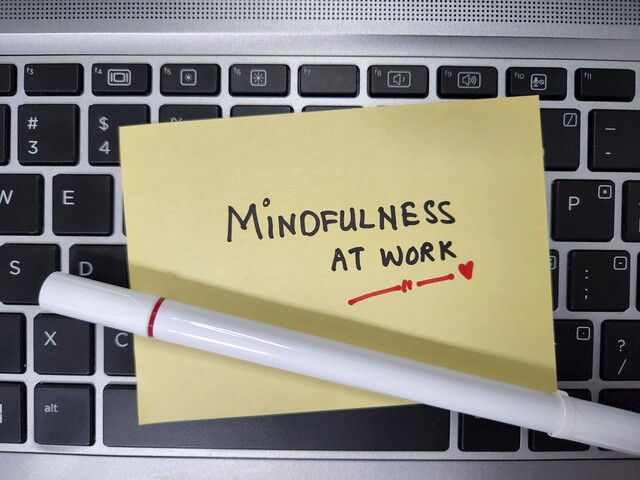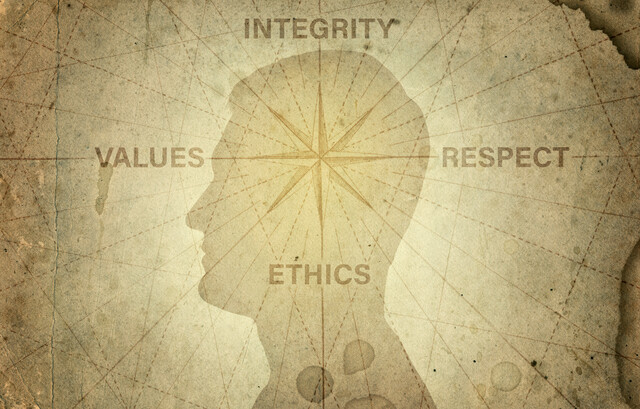Online Class: Introduction to Ethics

no certificate
with CEU Certificate*
-
15Lessons
-
38Exams &
Assignments -
927Students
have taken this course -
7Hours
average time -
0.7CEUs
Course Description
Embarking on the vast expanse of moral philosophy, this immersive course offers a captivating exploration into the world of ethics. More than just a theoretical study, ethics delves into the very fabric of human behavior, urging us to question and reflect upon the principles that guide our actions. Imagine possessing the ability to discern the nuances between what's 'right' and what's merely 'acceptable'.
In the initial nine modules, we unravel the tapestry of moral codes, laying a robust foundation that illuminates the pillars of righteousness, integrity, and virtue. The inaugural lesson unveils the lexicon of ethics, beckoning you into its intriguing world. As we journey from the ancient footprints of philosophical thought to the contemporary dilemmas, lessons two and three chronicle the evolution of ethical thought. The subsequent sessions meticulously dissect foundational ethical theories, offering profound insights into virtue, the social contract, and deontological principles.
A nuanced understanding of ethics remains incomplete without applying it to real-life conundrums. Lessons ten through fifteen present an exhilarating challenge, plunging students into the depths of ethical dilemmas across a plethora of disciplines-be it the corporate corridors, the solemnity of medicine, the intricate world of law, or the bastions of education. Through these modules, you'll learn to scrutinize everyday scenarios, honing your ability to make ethically informed decisions.
Each module is meticulously designed to encourage introspection, peppered with thought-provoking questions that culminate in a quiz. The accompanying answer key is a treasure trove, offering rationale-rich insights, inviting students to revisit and re-examine the text. By the journey's end, you'll not only possess a panoramic view of ethics from its embryonic stages to its modern-day manifestations but also the acumen to apply these principles with finesse and sensitivity.
Course Modules:
- Diving into Ethics: An Introduction
- Tracing Ethical Footprints: Ancient to Renaissance
- From Enlightenment to Modern Ethics
- Branching Out: The Four Pillars of Ethics
- The Odyssey of Moral Evolution
- Straddling Cultures: Universality and Relativity in Ethics
- The Quintessence of Virtue and Natural Law
- Duty Calls: Delving into Deontology and the Social Covenant
- Deciphering Social Contract Theories
- Navigating Ethical Labyrinths: Personal Realm
- Corporate Conundrums: Ethics at Work
- Balancing Scales: Ethics in Medicine and Judiciary
- Boardrooms and Beyond: Ethical Imperatives in Business
- Governance and Ethics: Steering the Ship Right
- Constructing Moral Edifices: Ethics in Education and Architecture
Join us on this transformative journey, and emerge with a refined moral compass, steering through the multifaceted terrains of today's globalized society.
- Completely Online
- Self-Paced
- Printable Lessons
- Full HD Video

- 6 Months to Complete
- 24/7 Availability
- Start Anytime
- PC & Mac Compatible
- Android & iOS Friendly
- Accredited CEUs

Course Lessons
Lesson 1. Core Principles of Ethics Explained
 Lesson 1 Video
Lesson 1 Video Review Practice Worksheet: Lesson-1-HomeWork-13863.pdf
Review Practice Worksheet: Lesson-1-HomeWork-13863.pdf Lesson discussions: Reasons for Taking this Course
Lesson discussions: Reasons for Taking this Course Complete Assignment: Introduce Yourself
Complete Assignment: Introduce Yourself Assessment: Lesson 1 Exam
Assessment: Lesson 1 Exam Assessment: Lesson 1 Review Exam
Assessment: Lesson 1 Review Exam
Lesson 2. Socrates, Plato, and Aristotle: The Pioneers of Western Ethics
 Lesson 2 Video
Lesson 2 Video Review Practice Worksheet: Lesson-2-WorkSheet-13866.pdf
Review Practice Worksheet: Lesson-2-WorkSheet-13866.pdf Complete: Lesson 2 Activity
Complete: Lesson 2 Activity Assessment: Lesson 2 Exam
Assessment: Lesson 2 Exam Assessment: Lesson 2 Review Exam
Assessment: Lesson 2 Review Exam
Lesson 3. Kant and Mill: Foundations of Modern Ethics
 Lesson 3 Video
Lesson 3 Video Review Practice Worksheet: Lesson-3-HomeWork-13870.pdf
Review Practice Worksheet: Lesson-3-HomeWork-13870.pdf Assessment: Lesson 3 Exam
Assessment: Lesson 3 Exam Assessment: Lesson 3 Review Exam
Assessment: Lesson 3 Review Exam
Lesson 4. Journey Through Ethical Theories
 Lesson 4 Video
Lesson 4 Video Review Practice Worksheet: Lesson-4-WordSearch-13873.pdf
Review Practice Worksheet: Lesson-4-WordSearch-13873.pdf Assessment: Lesson 4 Exam
Assessment: Lesson 4 Exam Assessment: Lesson 4 Review Exam
Assessment: Lesson 4 Review Exam
Lesson 5. Building Blocks of Moral Growth: Piaget, Kohlberg, and Gilligan
 Lesson 5 Video
Lesson 5 Video Review Practice Worksheet: Lesson-5-Activity-13877.pdf
Review Practice Worksheet: Lesson-5-Activity-13877.pdf Complete: Lesson 5 Activity
Complete: Lesson 5 Activity Assessment: Lesson 5 Exam
Assessment: Lesson 5 Exam Assessment: Lesson 5 Review Exam
Assessment: Lesson 5 Review Exam
Lesson 6. Ethics Across Cultures
 Lesson 6 Video
Lesson 6 Video Review Practice Worksheet: Lesson-6-Activity-13882.pdf
Review Practice Worksheet: Lesson-6-Activity-13882.pdf Assessment: Lesson 6 Exam
Assessment: Lesson 6 Exam Assessment: Lesson 6 Review Exam
Assessment: Lesson 6 Review Exam
Lesson 7. Virtue Ethics Explained: A Journey of Philosophical Pursuits
 Lesson 7 Video
Lesson 7 Video Review Practice Worksheet: Lesson-7-Activity-13885.pdf
Review Practice Worksheet: Lesson-7-Activity-13885.pdf Complete: Lesson 7 Activity
Complete: Lesson 7 Activity Assessment: Lesson 7 Exam
Assessment: Lesson 7 Exam Assessment: Lesson 7 Review Exam
Assessment: Lesson 7 Review Exam
Lesson 8. Social Contract Philosophies: From Hobbes to Modern Implications
 Lesson 8 Video
Lesson 8 Video Review Practice Worksheet: Lesson-8-HomeWork-13888.pdf
Review Practice Worksheet: Lesson-8-HomeWork-13888.pdf Assessment: Lesson 8 Exam
Assessment: Lesson 8 Exam Assessment: Lesson 8 Review Exam
Assessment: Lesson 8 Review Exam
Lesson 9. Ethical Dualities: Exploring Utilitarianism and Care Ethics
 Lesson 9 Video
Lesson 9 Video Review Practice Worksheet: Lesson-9-Downloadable-13892.pdf
Review Practice Worksheet: Lesson-9-Downloadable-13892.pdf Complete: Lesson 9 Activity
Complete: Lesson 9 Activity Assessment: Lesson 9 Exam
Assessment: Lesson 9 Exam Assessment: Lesson 9 Review Exam
Assessment: Lesson 9 Review Exam
Lesson 10. Crafting and Living Your Personal Code of Ethics
 Lesson 10 Video
Lesson 10 Video Review Practice Worksheet: Lesson-10-Downloadable-13898.pdf
Review Practice Worksheet: Lesson-10-Downloadable-13898.pdf Complete: Lesson 10 Activity
Complete: Lesson 10 Activity Assessment: Lesson 10 Exam
Assessment: Lesson 10 Exam Assessment: Lesson 10 Review Exam
Assessment: Lesson 10 Review Exam
Lesson 11. Navigating Workplace Ethics: Principles and Applications
 Lesson 11 Video
Lesson 11 Video Review Practice Worksheet: Lesson-11-Downloadable-13902.pdf
Review Practice Worksheet: Lesson-11-Downloadable-13902.pdf Assessment: Lesson 11 Exam
Assessment: Lesson 11 Exam Assessment: Lesson 11 Review Exam
Assessment: Lesson 11 Review Exam
Lesson 12. Core Ethical Principles in Healthcare and Legal Professions
 Lesson 12 Video
Lesson 12 Video Review Practice Worksheet: Lesson-12-WordSearch-13907.pdf
Review Practice Worksheet: Lesson-12-WordSearch-13907.pdf Assessment: Lesson 12 Exam
Assessment: Lesson 12 Exam Assessment: Lesson 12 Review Exam
Assessment: Lesson 12 Review Exam
Lesson 13. Navigating Ethical Challenges in Business Environments
 Lesson 13 Video
Lesson 13 Video Review Practice Worksheet: Lesson-13-Activity-13911.pdf
Review Practice Worksheet: Lesson-13-Activity-13911.pdf Assessment: Lesson 13 Exam
Assessment: Lesson 13 Exam Assessment: Lesson 13 Review Exam
Assessment: Lesson 13 Review Exam
Lesson 14. Navigating the Complex World of Ethics in Politics and Journalism
 Lesson 14 Video
Lesson 14 Video Review Practice Worksheet: Lesson-14-WordSearch-13915.pdf
Review Practice Worksheet: Lesson-14-WordSearch-13915.pdf Complete: Lesson 14 Activity
Complete: Lesson 14 Activity Assessment: Lesson 14 Exam
Assessment: Lesson 14 Exam Assessment: Lesson 14 Review Exam
Assessment: Lesson 14 Review Exam
Lesson 15. Navigating Ethics in Education and Social Work: Principles and Challenges
 Lesson 15 Video
Lesson 15 Video Review Practice Worksheet: Lesson-15-WordSearch-13919.pdf
Review Practice Worksheet: Lesson-15-WordSearch-13919.pdf Lesson discussions: End of Course Poll; Course Comments; Course Comments
Lesson discussions: End of Course Poll; Course Comments; Course Comments Assessment: Lesson 15 Exam
Assessment: Lesson 15 Exam Assessment: The Final Exam
Assessment: The Final Exam Assessment: Lesson 15 Review Exam
Assessment: Lesson 15 Review Exam
Learning Outcomes
- Define and describe foundational ethical principles such as autonomy, beneficence, nonmaleficence, and justice and apply them to real-world scenarios.
- Identify ethical challenges arising in modern society, such as AI, privacy, and climate change, and propose solutions based on core ethical principles.
- Analyze the integration of Christian theological doctrines with classical philosophical traditions by exploring the dialogue between figures like Augustine and Aquinas.
- Define the historical influence of key philosophers such as Socrates, Plato, and Aristotle on ethical development through identification of their distinct contributions.
- Demonstrate understanding of Kant's ethical theory by explaining the categorical imperative and its application to moral actions.
- Identify the core principles of Mill's utilitarianism and assess its influence on contemporary ethical debates and decision-making.
- Define and differentiate the four primary branches of ethics: normative ethics, descriptive ethics, meta-ethics, and applied ethics, by providing examples of their applications.
- Demonstrate understanding of normative ethical frameworks by analyzing scenarios where different ethical principles, such as consequentialism, deontology, and virtue ethics, would guide decision-making.
- Define the stages of moral development according to Piaget and Kohlberg, including key characteristics and age ranges.
- Identify and compare the different perspectives on moral reasoning advanced by Kohlberg and Gilligan, emphasizing the role of gender and ethical dimensions such as justice and care.
- Define Universalism and Relativism by describing their core tenets and primary philosophical arguments.
- Identify and analyze key philosophers' contributions to the debate between Universalism and Relativism, using specific examples from their works.
- Define the concept of eudaimonia and evaluate its role in virtue ethics as a measure of human flourishing.
- Demonstrate mastery of lesson content at levels of 70% or higher.
Additional Course Information

- Document Your Lifelong Learning Achievements
- Earn an Official Certificate Documenting Course Hours and CEUs
- Verify Your Certificate with a Unique Serial Number Online
- View and Share Your Certificate Online or Download/Print as PDF
- Display Your Certificate on Your Resume and Promote Your Achievements Using Social Media

Choose Your Subscription Plan
No Certificate / No CEUs
This course only
| Includes certificate | X |
| Includes CEUs | X |
| Self-paced |

|
| Instructor support |

|
| Time to complete | 6 months |
| No. of courses | 1 course |
Certificate & CEUs
This course only
| Includes certificate |

|
| Includes CEUs |

|
| Self-paced |

|
| Instructor support |

|
| Time to complete | 6 months |
| No. of courses | 1 course |
Certificates & CEUs
Includes all 600+ courses
| Includes certificate |

|
| Includes CEUs |

|
| Self-paced |

|
| Instructor support |

|
| Time to complete | 12 Months |
| No. of courses | 600+ |
Certificates & CEUs
Includes all 600+ courses
| Includes certificate |

|
| Includes CEUs |

|
| Self-paced |

|
| Instructor support |

|
| Time to complete | 24 Months |
| No. of courses | 600+ |
Student Testimonials
- "The course was very helpful. It will definitely help me in both my personal and professional life to make better and ethical decisions that will take ethics and impact on others into consideration." -- Robert K.
- "This course was very helpful because it showed the right and wrong when it comes to your place of employment." -- Samantha T.
- "It has opened my eyes as to how we should act in the world." -- Kayla T.
Related Courses
-
 26 hours
2.6 CEUs
Human Resources Productivity Course Bundle
+ More Info
26 hours
2.6 CEUs
Human Resources Productivity Course Bundle
+ More Info
-
 7 hours
0.7 CEUs
How to Deal with Difficult Personalities
+ More Info
7 hours
0.7 CEUs
How to Deal with Difficult Personalities
+ More Info
-
 11 hours
1.1 CEUs
Mediation 101
+ More Info
11 hours
1.1 CEUs
Mediation 101
+ More Info
-
 5 hours
0.5 CEUs
Emotional Intelligence
+ More Info
5 hours
0.5 CEUs
Emotional Intelligence
+ More Info
-
 3 hours
0.3 CEUs
Job Performance Appraisals - A How To Guide
+ More Info
3 hours
0.3 CEUs
Job Performance Appraisals - A How To Guide
+ More Info
-
 8 hours
0.8 CEUs
Creating a Positive Work Environment
+ More Info
8 hours
0.8 CEUs
Creating a Positive Work Environment
+ More Info
-
 5 hours
0.5 CEUs
Understanding Workers' Compensation
+ More Info
5 hours
0.5 CEUs
Understanding Workers' Compensation
+ More Info
-
 5 hours
0.5 CEUs
Listening Skills
+ More Info
5 hours
0.5 CEUs
Listening Skills
+ More Info
-
 8 hours
0.8 CEUs
Assertiveness Training
+ More Info
8 hours
0.8 CEUs
Assertiveness Training
+ More Info
-
 6 hours
0.6 CEUs
Workplace Violence: A Guide to Responding and Preventing
+ More Info
6 hours
0.6 CEUs
Workplace Violence: A Guide to Responding and Preventing
+ More Info
-
 7 hours
0.7 CEUs
Preventing Workplace Harassment
+ More Info
7 hours
0.7 CEUs
Preventing Workplace Harassment
+ More Info
-
 7 hours
0.7 CEUs
Employment Law Fundamentals
+ More Info
7 hours
0.7 CEUs
Employment Law Fundamentals
+ More Info
-
 7 hours
0.7 CEUs
Leadership Skills for Managers
+ More Info
7 hours
0.7 CEUs
Leadership Skills for Managers
+ More Info
-
 7 hours
0.7 CEUs
Respectful International Workplace
+ More Info
7 hours
0.7 CEUs
Respectful International Workplace
+ More Info
-
 7 hours
0.7 CEUs
Negotiation Skills
+ More Info
7 hours
0.7 CEUs
Negotiation Skills
+ More Info
-
 6 hours
0.6 CEUs
Persuasion Techniques
+ More Info
6 hours
0.6 CEUs
Persuasion Techniques
+ More Info
-
 6 hours
0.6 CEUs
Goal Setting for Business
+ More Info
6 hours
0.6 CEUs
Goal Setting for Business
+ More Info
-
 5 hours
0.5 CEUs
Developing Great Social Skills
+ More Info
5 hours
0.5 CEUs
Developing Great Social Skills
+ More Info
-
 5 hours
0.5 CEUs
Communicating with Diplomacy and Tact
+ More Info
5 hours
0.5 CEUs
Communicating with Diplomacy and Tact
+ More Info
-
 5 hours
0.5 CEUs
Anger Management Techniques
+ More Info
5 hours
0.5 CEUs
Anger Management Techniques
+ More Info
-
 6 hours
0.6 CEUs
Generational Diversity in the Workplace
+ More Info
6 hours
0.6 CEUs
Generational Diversity in the Workplace
+ More Info
-
 2 hours
0.2 CEUs
Mindfulness in the Workplace
+ More Info
2 hours
0.2 CEUs
Mindfulness in the Workplace
+ More Info
-
 6 hours
0.6 CEUs
Confidence Building
+ More Info
6 hours
0.6 CEUs
Confidence Building
+ More Info
-
 3 hours
0.3 CEUs
Understanding Learning Styles
+ More Info
3 hours
0.3 CEUs
Understanding Learning Styles
+ More Info
-
 7 hours
0.7 CEUs
Time Management 101
+ More Info
7 hours
0.7 CEUs
Time Management 101
+ More Info
-
 12 hours
1.2 CEUs
Write to Win: Secrets of Persuasive Writing
+ More Info
12 hours
1.2 CEUs
Write to Win: Secrets of Persuasive Writing
+ More Info
-
 4 hours
0.4 CEUs
Resolving Workplace Conflict
+ More Info
4 hours
0.4 CEUs
Resolving Workplace Conflict
+ More Info
-
 5 hours
0.5 CEUs
Recruitment and Retention Strategies
+ More Info
5 hours
0.5 CEUs
Recruitment and Retention Strategies
+ More Info
-
 10 hours
1.0 CEUs
Global Anti-Corruption and Bribery
+ More Info
10 hours
1.0 CEUs
Global Anti-Corruption and Bribery
+ More Info
-
 8 hours
0.8 CEUs
Strategic Planning
+ More Info
8 hours
0.8 CEUs
Strategic Planning
+ More Info
-
 5 hours
0.5 CEUs
Workplace Safety
+ More Info
5 hours
0.5 CEUs
Workplace Safety
+ More Info






